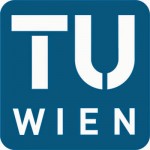TU WIEN (Austria)
 Technische Universitaet Wien (TU Wien) was founded in 1815 and is located in the heart of Vienna. It is the largest technical university in Austria with about 30.000 students. About 3.700 out of 4.800 employees are scientific staff. The annually budget consists of about 260 Mio € public funding plus about 90 Mio € project and third party funding. The faculty of Mechanical and Industrial Engineering has about 900 beginners each year and offers a wide range of engineering majors within the three main curricula mechanical engineering, engineering management and plant engineering (both bachelor and consecutive master). For the project proposal at hand, the Institute of Engineering Design and Product Development is taking the lead role for the involvement of TU Wien. The institute has an internationally recognized expertise in a wide range of product development, from the methodological side (design methodology, eco-design) over the core application areas of machine elements up to the level of IT support in terms of CAD (Computer Aided Design and Engineering), Virtual Product Development, and Product Lifecycle Management (PLM) in research and teaching. This includes methodological aspects (systems engineering, design methodology, integrated product development) as well as tool aspects for 3D modelling, design automation, knowledge based engineering, and product information management. The Institute has got an extensive hardware and software equipment in the relevant field. The Virtual Product Development Lab consists of more than 100 High-End Graphic workstations equipped with all major PLM and CAx applications, a wide range of peripherals, e.g. a VR powerwall, large format plotter, 3D printers for rapid prototyping, and a virtualised server infrastructure for hosting various PLM systems and other industrial IT applications. Technische Universitaet Wien (TU Wien) was founded in 1815 and is located in the heart of Vienna. It is the largest technical university in Austria with about 30.000 students. About 3.700 out of 4.800 employees are scientific staff. The annually budget consists of about 260 Mio € public funding plus about 90 Mio € project and third party funding. The faculty of Mechanical and Industrial Engineering has about 900 beginners each year and offers a wide range of engineering majors within the three main curricula mechanical engineering, engineering management and plant engineering (both bachelor and consecutive master). For the project proposal at hand, the Institute of Engineering Design and Product Development is taking the lead role for the involvement of TU Wien. The institute has an internationally recognized expertise in a wide range of product development, from the methodological side (design methodology, eco-design) over the core application areas of machine elements up to the level of IT support in terms of CAD (Computer Aided Design and Engineering), Virtual Product Development, and Product Lifecycle Management (PLM) in research and teaching. This includes methodological aspects (systems engineering, design methodology, integrated product development) as well as tool aspects for 3D modelling, design automation, knowledge based engineering, and product information management. The Institute has got an extensive hardware and software equipment in the relevant field. The Virtual Product Development Lab consists of more than 100 High-End Graphic workstations equipped with all major PLM and CAx applications, a wide range of peripherals, e.g. a VR powerwall, large format plotter, 3D printers for rapid prototyping, and a virtualised server infrastructure for hosting various PLM systems and other industrial IT applications. |
| The institute is involved in many research projects with public funding on both national and European Level (H2020). With respect to the topic education in engineering design, the involved research group has carried out three nationally funded projects together with 6 vocational schools in Austria as partners. The aim of the first project was to establish a central PLM solution for all partner schools in order to establish up to date management capabilities for the involved schools. In the subsequent project, the solution was adapted to provide a basis for school spanning projects and especially enhance functions for eco-design and life cycle assessment (LCA). In the last and recently finished project, systems engineering (SE) approaches were introduced within the engineering design courses of the vocational partner schools and required PLM system integration of special SE tools is implemented. |
| Furthermore, the institute is currently involved in the two ERASMUS+ Key Action 2 “Strategic Partnership” projects CASPROD (Capitals of Smart Product Development) and ELPID (Elearning Platform for Innovative Product Development). One particular focus of this project is to integrate smart product engineering and smart production from both, a research point of view as well as an educational point of view in terms of special skill development and transfer of students and also engineer-ing professionals. The latter aspect was also especially targeted with the national funded project “Digital Transformation 4.0” (http://www.digitrans.at/), which ended in November 2018 and will be transferred to a permanent offer by TU Wien. |









